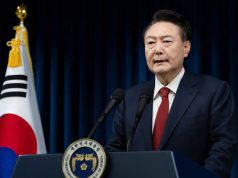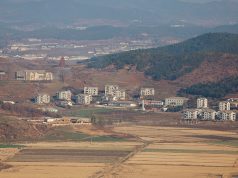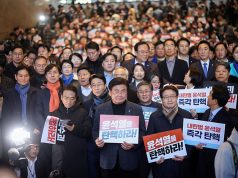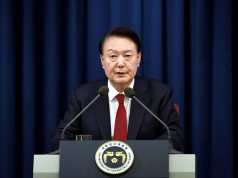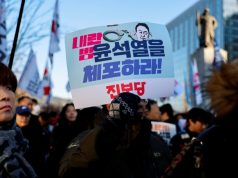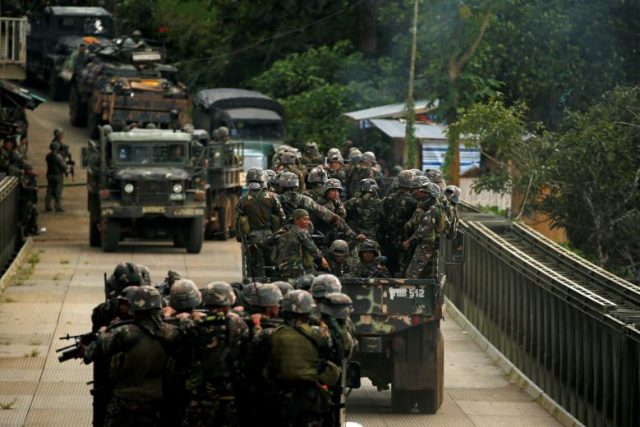
Members of the opposition are raising questions about the Armed Forces of the Philippines’ plans to recommend the extension of martial law in the island of Mindanao for another year.
Armed Forces chief Gen. Carlito Galvez in a statement of Monday said that he will be recommending the extension of martial law in Mindanao for another year as it was necessary to curb the problem of terrorism in the region.
“We have recommendations already. Because there is really a great clamor for the extension, considering that the terrorism is still lurking in the area. There is really need to constrict, limit the maneuver space of the terrorist to the maximum,” Galvez said in a statement to the media.
He said that the recommendation will most likely be submitted to Defense Secretary Delfin Lorenzana on December 12, also the date of Galvez’s retirement.
President Rodrigo Duterte, who declared Martial Law in Mindanao after the breakout of the Marawi Siege of May 2017, previously said that he would await the recommendation of the AFP and the Philippine National Police before acting on its extension. Congress had approved its extension only until Dec. 31, 2018.
PNP Chief Director General Oscar Albayalde said in a separate statement that the police will likewise be recommending the extension of martial law in Mindanao.
“What I know is that we already have a recommendation that we are for the extension, especially so, the upcoming election and the plebiscite. We are for the extension,” he said in his statement.
Some groups and critics of the administration have voiced their opposition to the possibility of the Mindanao region being placed under martial law for another year.
Former solicitor general and 2019 senatorial aspirant Florin Hilbay said that the conditions to extend martial law in the region were not yet present.
Sir, the Constitution requires INVASION or REBELLION as prerequisite for imposing martial law. The SC emphasizes it must be ACTUAL invasion or rebellion.
The "promise" not to expand it nationwide doesn't make it right or less unreasonable.
Let's not normalize martial law. https://t.co/UpRs0g0aRb
— pilo hilbay (@fthilbay) December 3, 2018
Former communications official Manuel L. Quezon III meanwhile posited that an extension of martial law in Mindanao could be an indicator that a nationwide declaration was presently unlikely.
A glass half-full way of looking at this, considering belief that President is just itching to expand it nationwide and is only being held back by some in military, is that this is a bargain that binds President to a policy that won't expand martial law. https://t.co/IbpeUoUkQa
— Manuel L. Quezon III (@mlq3) December 3, 2018
A group of human rights activists and indigenous leaders including former Bayan Muna representative Satur Ocampo and ACT Teacher Party-list Rep. France Castro, who were recently arrested after charges of human trafficking and kidnapping, also opposed the plans to extend the declaration after their release.
Another year of martial law?
Critics of martial law in the region have claimed that military rule in the island facilitated a number of human rights abuses in the year-and-a-half since Duterte’s Proclamation 216.
Rights group Karapatan in May 2018 submitted a report to the United Nations saying that there were at least 49 extrajudicial killings that targeted peasant and indigenous leaders, as well as 22 cases of torture, 116 victims of frustrated extrajudicial killings, 89 victims of illegal arrest and detention and 336,124 victims of indiscriminate gunfire and aerial bombings.
The Commission on Human Rights recently said that it was still verifying reports of abuse in Mindanao.
Article VII, Sec. 18 of the 1987 constitution allows the president to place the Philippines or any part thereof under martial law “in case of invasion or rebellion, when the public safety requires it,” for a period of 60 days. Extension of martial law will be decided by Congress, after initiative of the president.
The Supreme Court in a 10-5 vote in February 2018 upheld the extension of martial law in Mindanao until December that year, after it found that the factual basis for the declaration was still present.
The tribunal found that “the rebellion that spawned the Marawi incident persists” and the AFP had presented enough facts to show that public safety required the extension.




